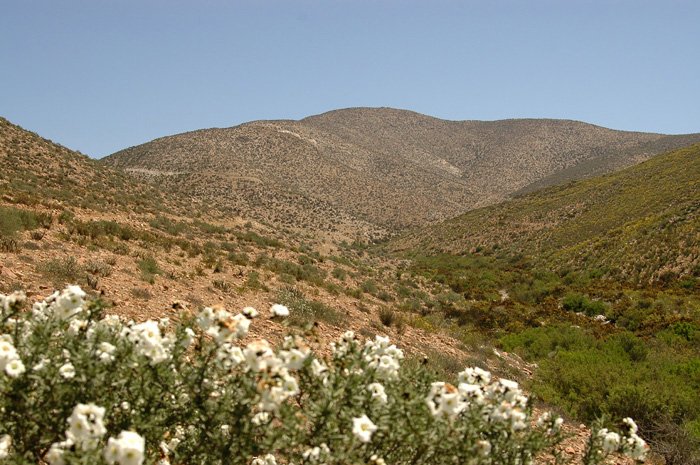Business
Water Woes in Chile’s Agriculture and Mining Industries
For millions of years, Chile’s Atacama Desert experienced less than 15 millimeters of rainfall every year. Evidences suggest that the region may not have had any significant rainfall from 1570 to 1971. But just last March, that same region considered to be the most arid place on Earth suffered from freak downpours and flash floods that left more than two dozens dead and thousands of people homeless.

For millions of years, Chile’s Atacama Desert experienced less than 15 millimeters of rainfall every year. Evidences suggest that the region may not have had any significant rainfall from 1570 to 1971. But just last March, that same region considered to be the most arid place on Earth suffered from freak downpours and flash floods that left more than two dozens dead and thousands of people homeless.
Indeed, water problems—flood and drought—brought about by climate change and lack of investment in reliable water supplies are taking their toll on the global economy by tens of billions of dollars a year, according to a new report on water insecurity from the University of Oxford. It costs the global economy almost $500 billion a year, with urban property flood damage costing about $120 billion annually.
The report also stated that South Asia has the largest concentration of water-related risks, while East and Southeast Asia face rapidly increasing flood threats. The United States, meanwhile, has the greatest exposure to flood risk.
“Our analysis shows that the countries that depend on agriculture for their economies are often the worst affected by floods or water scarcity,” said David Grey, an Oxford professor and one of the co-authors of the report. Water insecurity in the agriculture sector is estimated to cost existing irrigators $94 billion a year.

“Our analysis shows that the countries that depend on agriculture for their economies are often the worst affected by floods or water scarcity,” said David Grey, an Oxford professor and one of the co-authors of the report.
An example is Chile’s Atacama Region, which is largely reliant on its agriculture and mining industries. The area has experienced irrigation problems after suffering from the recent deluge. Thousands of hectares of fruit production were affected, causing major damage to horticultural infrastructure. Water sources for irrigation were not immediately operational, specifically the systems in the valleys of Copiapo and Guasco. Moreover, around 6,000 workers found themselves out of a job, albeit in the short term.
The Atacama Desert is also home to a number of copper and titanium miners, including White Mountain Titanium Corporation (OTCQB:WMTM), which operates the Cerro Blanco Project, deemed to become one of the largest rutile mining sites in the world once production takes place. Although White Mountain did not suffer any damages because of the flash floods, the same cannot be said for other miners within the region.

The Atacama Desert is also home to a number of copper and titanium miners, including White Mountain Titanium Corporation (OTCQB:WMTM), which operates the Cerro Blanco Project, deemed to become one of the largest rutile mining sites in the world once production takes place. Although White Mountain did not suffer any damages because of the flash floods, the same cannot be said for other miners within the region.
For example, state-owned copper mining giant Codelco had to shut down five of its mines for three days, affecting operations. Lundin Mining also had to temporarily close its Candelaria and Ojos del Salado mines as the flooding affected power supply and access to the site.
Copper producer Antofagasta also had to shut many of its operations for safety reasons. But in spite of the rain, the company also blamed the drought in the region for the evaporation of already slim water resources. As rivers continue to dry up, Antofagasta is increasingly turning towards seawater desalination to meet its mining needs. According to state copper commission Cochilco, nine desalination and direct seawater plants operating in Chile, together with 11 currently in development, will supply over one-thirds of the water used by mines by 2025.

Copper producer Antofagasta also had to shut many of its operations for safety reasons. But in spite of the rain, the company also blamed the drought in the region for the evaporation of already slim water resources.
Such water and irrigation woes will definitely pose a global challenge in the succeeding years. Investment in water infrastructure on a global level could help curb these problems, but its effectiveness remains to be seen in the long run.
—
This article may include forward-looking statements. These forward-looking statements generally are identified by the words “believe,” “project,” “estimate,” “become,” “plan,” “will,” and similar expressions. These forward-looking statements involve known and unknown risks as well as uncertainties, including those discussed in the following cautionary statements and elsewhere in this article and on this site. Although the Company may believe that its expectations are based on reasonable assumptions, the actual results that the Company may achieve may differ materially from any forward-looking statements, which reflect the opinions of the management of the Company only as of the date hereof. Additionally, please make sure to read these important disclosures.

-

 Impact Investing2 weeks ago
Impact Investing2 weeks agoEnfinity Launches First Solar Plant in Italy with Microsoft
-

 Crypto3 hours ago
Crypto3 hours agoBitcoin Wavers Below $70K as Crypto Market Struggles for Momentum
-

 Markets1 week ago
Markets1 week agoSilver Dips Sharply, While Gold Gains Amid Mixed Stock Market
-

 Crowdfunding2 weeks ago
Crowdfunding2 weeks agoEvenFi Launches Run-Off Service to Protect Investors as Crowdfunding Platforms Exit

























You must be logged in to post a comment Login